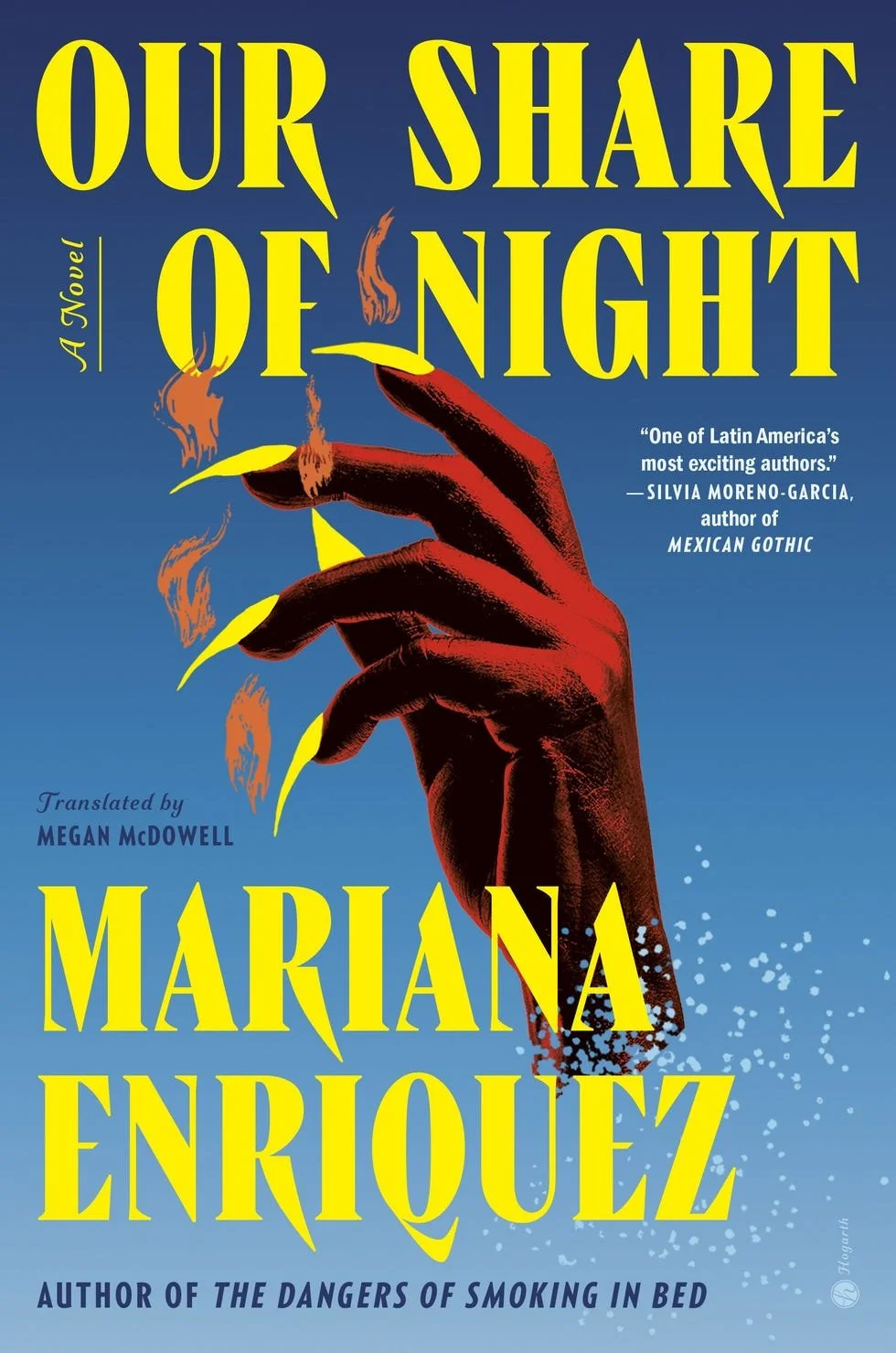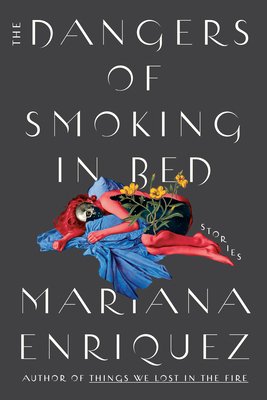Our Share of Night / Mariana Enriquez, trans. Megan McDowell / 2023
I picked up Our Share of Night because it combined my interests in erotica, horror, and Latin American literature. The novel did not disappoint on any of the counts. Enriquez is a master at capturing the historical, emotional and political zeitgeist of distinct cultural eras in history, both in Latin America and Europe, including rock and roll scenes, occult movements, and more. The magical oligarchy Enriquez invents is full of just enough intrigue, mystery and logic to drag the reader through horrifying scenes with an unsettled and confused, but fully invested. This is also done with master-level character work. How could one not feel for Gaspar, a young warlock whose inherited diabolical powers and is being hunted by his cruel murderous oligarchic grandparents to harness his powers? He’s a thousand times more compelling, developed, and realistic than Harry Potter. Every turn of the plot manages confuse, surprise, move, and intrigue. There is some questionable navigation of race that merits more exploration, but a closer inspection might reveal something more complicated and useful, even if not wholly unproblematic. 5/5.













